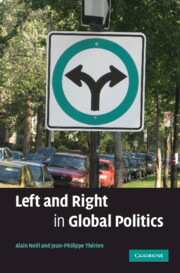Book contents
- Frontmatter
- Contents
- List of tables
- List of figures
- Acknowledgements
- Introduction
- 1 A clash over equality
- 2 A worldwide value divide
- 3 Two tales of globalization
- 4 The rise of the modern state system (1776–1945)
- 5 The age of universality (1945–1980)
- 6 The triumph of market democracy (1980–2007)
- 7 Twenty-first-century rapprochement
- 8 The core currency of political exchange
- Conclusion
- Index
- References
1 - A clash over equality
Published online by Cambridge University Press: 05 September 2012
- Frontmatter
- Contents
- List of tables
- List of figures
- Acknowledgements
- Introduction
- 1 A clash over equality
- 2 A worldwide value divide
- 3 Two tales of globalization
- 4 The rise of the modern state system (1776–1945)
- 5 The age of universality (1945–1980)
- 6 The triumph of market democracy (1980–2007)
- 7 Twenty-first-century rapprochement
- 8 The core currency of political exchange
- Conclusion
- Index
- References
Summary
On August 24, 2006, the General Assembly of the International Astronomical Union (IAU) took a vote in Prague on the proper definition of the term “planet.” Following years of intense debate, the IAU's decision was far from insignificant. As a result of the vote, Pluto lost its status as the solar system's ninth planet, and was reclassified in the diplomatically named category of “dwarf planets.” The dispute over Pluto's nature, which had been raging for years, had become a major source of embarrassment for astronomers in 2005, when Michael Brown, a scientist working at the California Institute of Technology, discovered Xena, a celestial body larger than Pluto. Although it was passed with a clear majority, the IAU's vote did not stop the controversy between opponents and fans of Pluto. While the discoverer of Xena himself maintained that the IAU decision was “the right scientific choice,” astronomer Alan Stern of the Southwest Research Institute in Colorado – who had sold the US Congress on the idea of funding a space mission to the “last planet” – declared for his part: “This is a sloppy, bad example of how science should be done.” Given that Stern's dissatisfaction was shared by several of his colleagues, the IAU is likely to reconsider its definition of “planet” at its next triennial meeting, in 2009. The “Pluto war” is not over yet.
- Type
- Chapter
- Information
- Left and Right in Global Politics , pp. 6 - 31Publisher: Cambridge University PressPrint publication year: 2008



